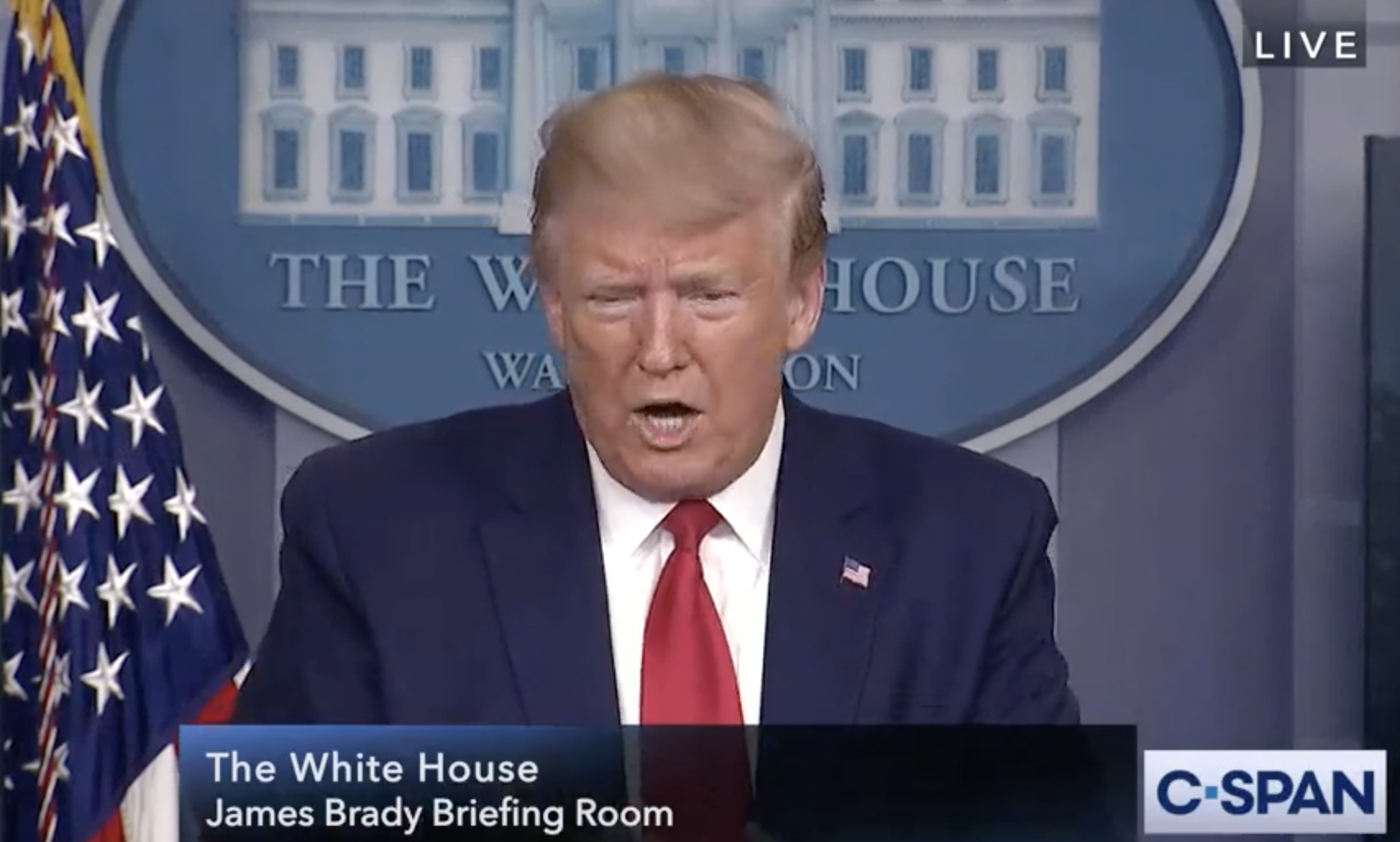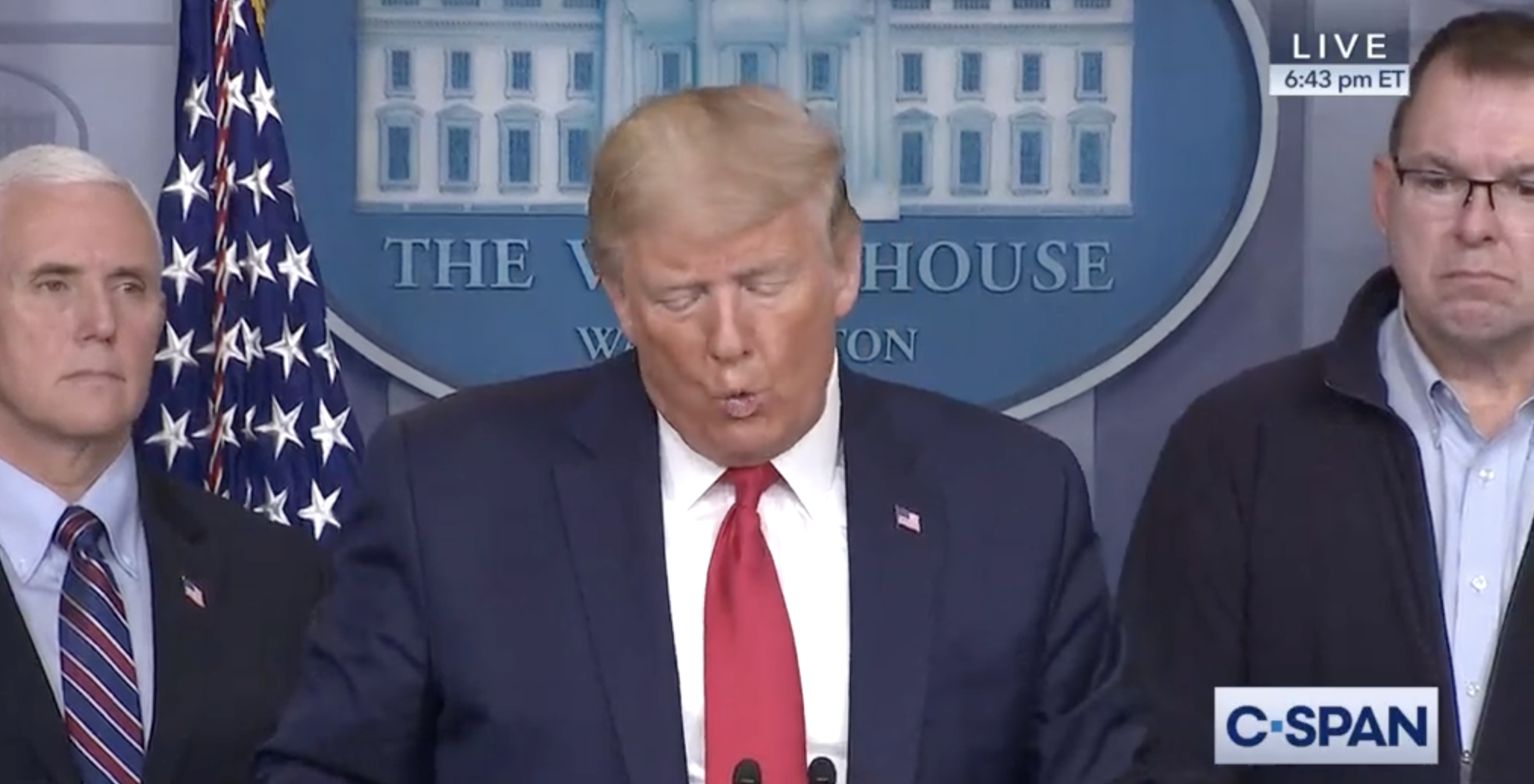Trump Policy Maximizes Deaths in Food Factories
Even before coronavirus spread to the United States, the risk to meat-packing plants was known. Major meat-packers in the US are either owned by Chinese companies (Smithfield) or have factories in China (JBS and Cargill). Still, the plants were slow to offer their workers masks, much less space out the lines sufficient to prevent infections. In most cases, workers were not given sick pay to encourage infected workers to stay home.
All of those policies could have cut down on infections. Those policies might have prevented shutdowns of at least 15 plants. Those policies are within the emergency authority of OSHA. AFL-CIO called on OSHA to issue an Emergency Temporary Standard for protecting workers back on March 6. And a bunch of Democratic Senators called on Eugene Scalia to do the same days later.
At the time, a number of industries wanted to mandate masks, but could not because of the shortage of personal protective equipment destined for medical workers. Trump could have deployed the Defense Production Act to mandate manufacturers like 3M to prioritize first line workers.
Trump didn’t do any of that.
Indeed, OSHA waited until yesterday to issue non-mandatory guidance for meat facilities. Upwards of 20 workers at a number of facilities have died. Even a food inspector died.
And today — as livestock slaughter starts to backlog and red state voters contemplate lost sales — Trump will announce he’s going to (try to) use the DPA to mandate that meatpacking plants — including some that have closed because of COVID outbreaks — open and remain that way (it’s not clear the DPA authority extends this far). Apparently, he will provide liability protection for the companies, even as their workers continue to infect each other and their surrounding communities.
Trump’s action might address the failure of the food supply chain.
But along the way, his inaction will have led to infections and death before today, and any success he has at forcing workers to work while sick will lead to infections and death after today. At each stage, Trump’s policies have maximized the deaths of workers.
He has only prioritized that his meatpacker executive donors can keep killing cows and pigs and chickens, along with their workers.
Update: UFCW, which represents some of the affected workers, demands that this order include safety provisions. It reveals the union wrote Pence last week asking for five safety actions:
In the last week, UFCW sent a letter to Vice President Pence urgently calling for the White House Coronavirus Task Force to prioritize five safety actions targeted toward the meatpacking industry, including: (1) increased worker testing, (2) priority access to PPE, (3) halting line speed waivers, (4) mandating social distancing, and (5) isolating workers with symptoms or testing positive for COVID-19.
Today, new internal UFCW estimates have confirmed 20 worker deaths in meatpacking and food processing. In addition, at least 5,000 meatpacking workers and 1,500 food processing workers have been directly impacted by the virus. Those directly impacted include individuals who have tested positive for COVID-19, missed work due to self-quarantine, are awaiting test results, or have been hospitalized, and/or are symptomatic.
UFCW announced today that new estimates show 22 meatpacking plants have closed – including union and non-union plants – at some point in the past two months. These closures have resulted in over 35,000 workers impacted and a 25 percent reduction in pork slaughter capacity as well as a 10 percent reduction in beef slaughter capacity.


